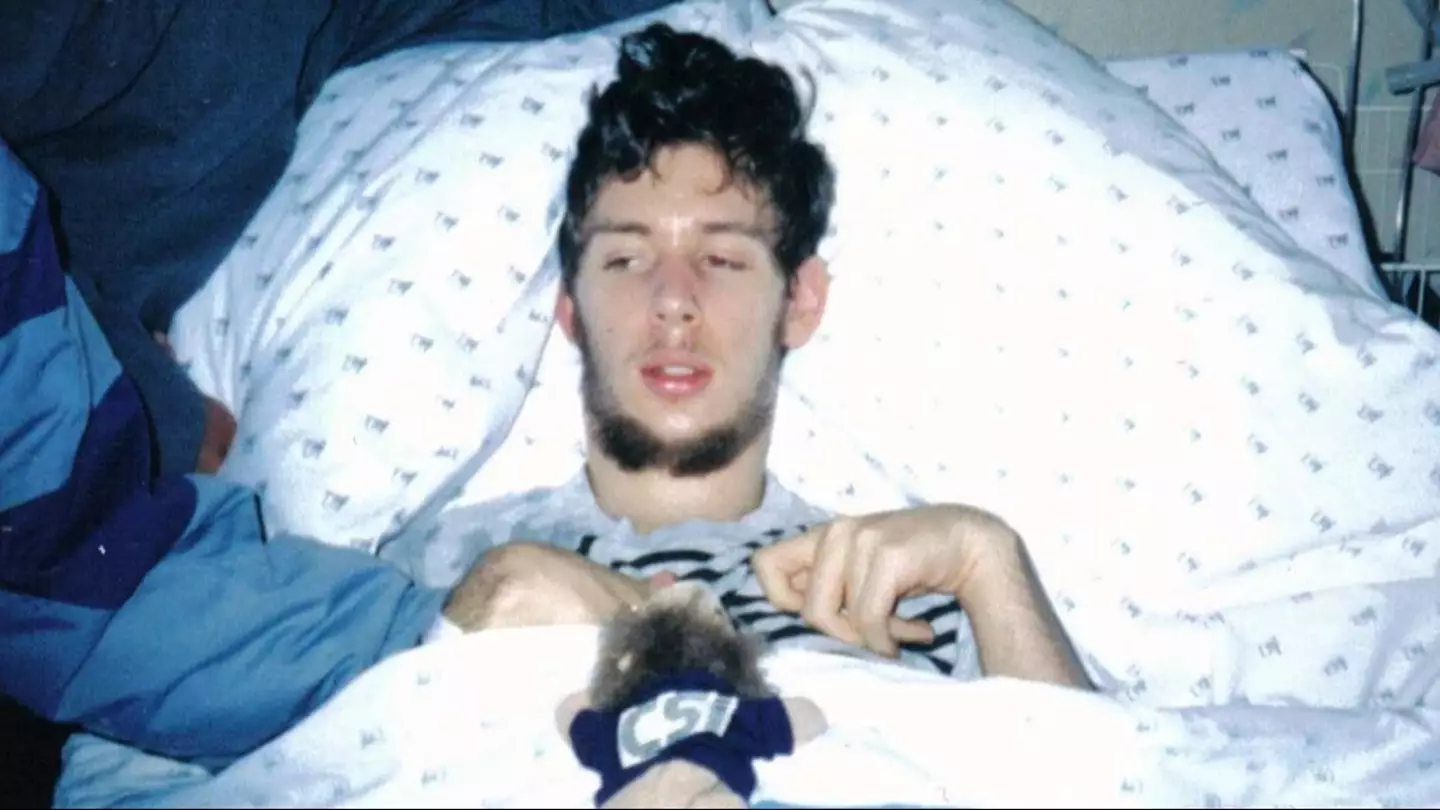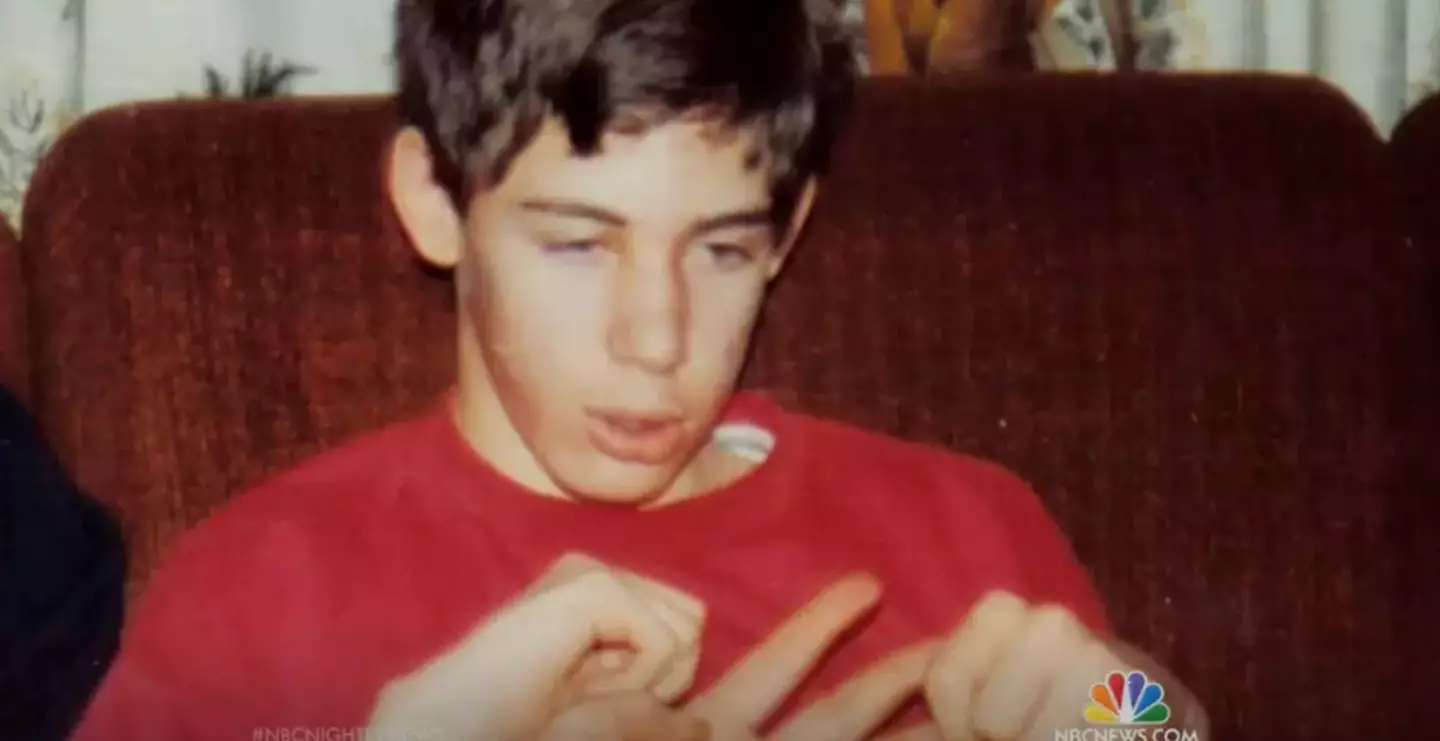
In 1988, when he was just a boy, Martin Pistorius contracted a terrifying illness that eventually led to the development of something colloquially known as ‘locked-in syndrome’ (LiS).
Pistorius was just 12 years old when he noticed he was suffering from a sore throat.
Tragically, the seemingly mild symptom quickly began to worsen, and his parents rushed him to hospital where he was eventually diagnosed with cryptococcal meningitis (CM) and tuberculosis of the brain (TBM).
Doctors unsuccessfully tried to treat him for both illnesses. As a result of the medical failure, the South African eventually developed LiS.
Advert
LiS, also known as pseudocoma, is an extremely rare condition where a patient is considered conscious and aware, but cannot move their body or communicate verbally.
The serious neurological disorder has no treatment or cure. Treatment instead focuses on establishing communication methods, such as eye blinks or electronic devices, and respiratory therapy to maintain muscle function and breathing.
"My body weakened and I lost the ability to speak and control my movements," Pistorius admitted in a candid interview with LADbible.

'It's like you don't exist'
For four years, he was in a complete vegetative state, with his mind regressing to the age of an infant.
Doctors informed the man’s family that his chance of survival was limited, while medics claimed he had less than two years to live.
"For me, that feeling of complete and utter powerlessness is probably the worst feeling I have ever experienced, and I hope I never have to experience again,” he recalled.
"It's like you don't exist, every single thing in your life is decided by someone else," he went on.
"Everything, from what you wear, to what you eat and drink, even if you eat or drink, to where you will be tomorrow, or next week, and there is nothing you can do about it."
But when Pistorius turned 16, something started to change.

'Complete and utter powerlessness'
"I remember around my 16th birthday people talking about the stubble on my chin and wondering whether to shave me," he admitted.
"It scared and confused me to listen to what was being said because, although I had no memories or sense of a past, I was sure I was a child and the voices were speaking about a soon-to-be man.
"I was able to hear, see, and understand everything around me, but I had absolutely no power or control over anything.
"For me, that feeling of complete and utter powerlessness is probably the worst feeling I have ever experienced, and I hope I never have to experience again.”
At this point, no one around knew he'd regained consciousness and presumed that the then-teenager was still in a coma.
But everything changed in 2001 when he met therapist Virna van der Walt at his day centre.

She discovered Pistorius, then 25, had 'a sparkle in his eye' and speculated that he'd regained consciousness.
She encouraged his parents to take him to the Centre for Augmentative and Alternative Communication (CAAC) at the University of Pretoria, where experts learned he was aware of what was going on around him.
Eventually, his caregivers bought a computer that was preloaded with communication software, allowing Pistorius to speak again. He selected letters, words, and symbols on the device using a band attached to his head.
Two decades later, Pistorius has made a miraculous recovery and has achieved so much: a first-class honours degree in computer science, learnt to drive, and become a father with his wife, Joanna.
Updating his followers on his progress in an Instagram post, Martin, now 50, explained: "I am intensely grateful to the people who have passed through my life, and those who remain part of it, especially my wife. For without them and the grace of God, none of this would have been possible.”
